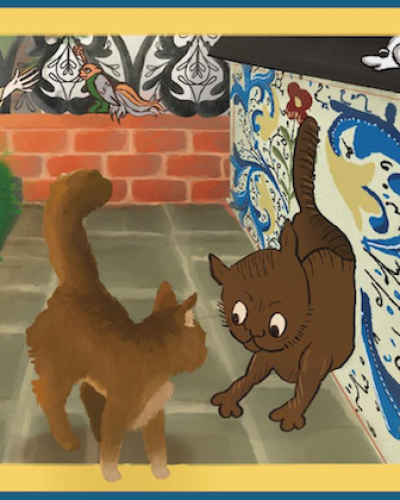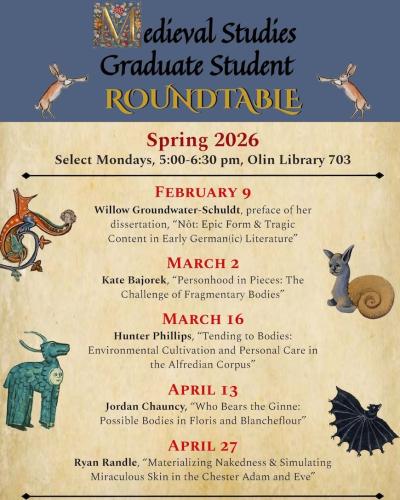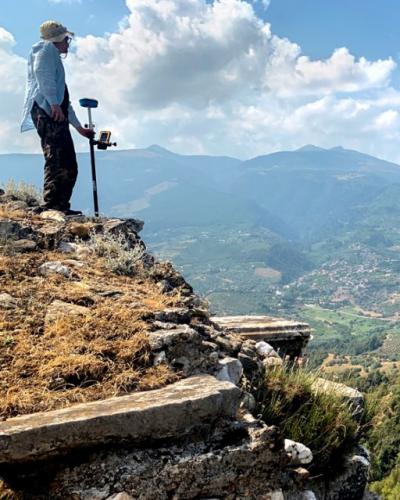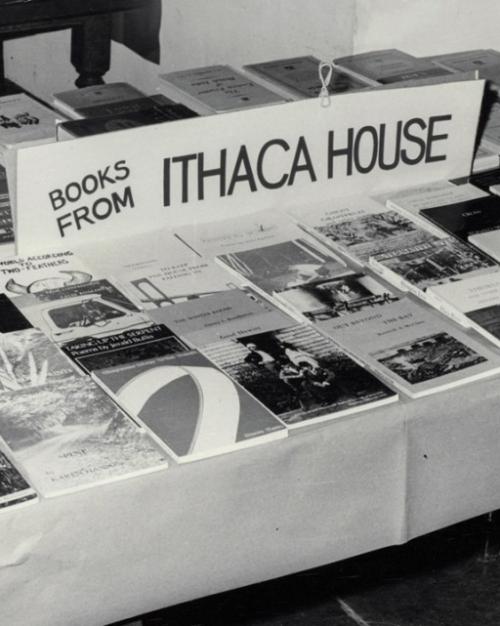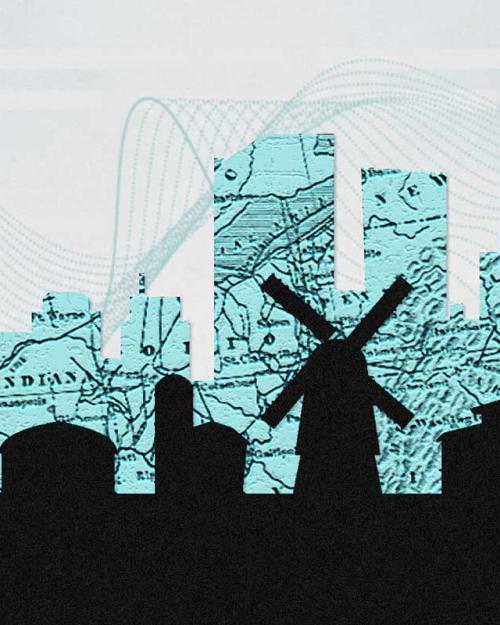How might artificial intelligence (AI) be harnessed to propel discovery not only in the sciences, but in politics and poetics as well? Could novel chemistry enhance our ability to capture and reuse carbon? And how could archaeology of an Ithaca church combine with creative writing and 3D computer models to illuminate the experience of traveling the Underground Railroad?
The College of Arts and Sciences (A&S) has awarded 14 New Frontier Grants totaling nearly $2 million to faculty members pursuing research projects ranging from the physics of quantum computing to the design of new musical instruments; from machine-learning-enabled studies of Parkinson’s disease to the politics of the rural-urban divide.
Conceived by Ray Jayawardhana, the Harold Tanner Dean of A&S and a professor of astronomy, and the college’s leadership team, the program aims to encourage high-impact scholarship with compelling visions and potential to secure external support. The inaugural cycle received 55 applications representing A&S’ full range of disciplines. The grants were made possible thanks to philanthropic support, including support from Miriam Shearing ’56; Carolyn Wiener ’69 and Malcolm Wiener; Scott Fowkes ’85 and family; and Jesse Ho ’88 and Eliza Lau ’88.
“Often discovery results from talented researchers venturing into uncharted territory or from unexpected collaborations across disciplinary boundaries. Arts and Sciences faculty are already at the forefront of cutting-edge fields, including artificial intelligence and quantum computing, as well as critical inquiries into social sciences and the arts,” Jayawardhana said. “New Frontier Grants will enable the pursuit of bold ideas with potential for transformative advances. I look forward to seeing the breakthroughs and the impact that our faculty members will make thanks to this vital support.”
One New Frontier Grant will support research in Ithaca that combines science, history and creative work. Gerard Aching, professor of Africana and Romance studies, and Lyrae Van Clief-Stefanon, associate professor of Literatures in English, will collaborate with scholars in earth sciences, archaeology, history and the Milstein Program in Technology and Humanities to research and document the story of Ithaca’s Underground Railroad station, the St. James African Methodist Episcopal Zion Church.
“Our goal is to bring to light and research a very significant phenomenon in our country’s history even as documentation about it from the first-person perspective of a freedom seeker on the underground railroad is scarce,” Aching said. “Our combined disciplinary and community efforts will allow us to approach the ‘facts’ of the Underground Railroad from the sciences, technology, and humanities. What we discover will afford us the opportunity to document and interrogate how we approach and evaluate knowledge-based truths of human experience on the Underground Railroad.”
Tristan Lambert, professor of chemistry and chemical biology, will develop novel chemistry for the capture and reuse of carbon dioxide – leading to tremendous opportunities to address climate change.
“We are trying to discover a new chemical reaction to react with, and thus trap, carbon dioxide,” Lambert said. “If successful, this research could lead to new materials that can be regenerated with much less energy input than existing materials. It could also lead to new processes to convert carbon dioxide into valuable products, including fuels or polymer building blocks.”
Suzanne Mettler, the John L. Senior Professor of American Institutions in government, will investigate why a rural-urban political divide has emerged in America in the past quarter century; how this divide is influencing political polarization and democracy; and how its harmful effects might be mitigated.
“Although rural and urban people do not vary dramatically in their views about most policy issues, increasingly they behave as if they are members of two opposing teams, in a politics of ‘us versus them,’” Mettler said. “Better understanding the rural-urban divide is crucial to bridging it.”
Eun-Ah Kim, professor of physics, will use machine learning (ML) tools to solve problems in quantum computing related to qubits, which store an exponentially larger amount of information securely than classical bits but whose quantum foundation makes them difficult to characterize.
“What makes qubits secure is also what makes them secretive,” Kim said. “Quantum mechanics only allows a stroboscopic – or fragmented – view of the state of qubits. Machine learning can help us figure out the whole picture of their state from those stroboscopic views.”
Several other projects also involve AI or machine learning:
- "Poetry, AI and the Mind: A Humanities-Cognitive Science Transdisciplinary Exploration”: Morten Christiansen, the William R. Kenan Jr. Professor of Psychology, and Laurent Dubreuil, professor of Romance studies and comparative literature, will conduct empirical research on poetry, connecting the humanities, AI and cognitive science, from the perspective of a broader discussion about mental and cultural diversity.
- "Developing AI Tools for Discovery in Large Scale Astronomy Programs”: James Cordes, the George Feldstein Professor of Astronomy, will develop AI tools for “multimessenger” astronomy, the coupling of gravitational wave tracers with traditional telescope data, to enable discovery of pairs of orbiting black holes with masses a billion times the sun’s, in order to understand the formation and evolution of supermassive black holes.
- "Machine Learning Guided Dissection and Correction of Neural Circuit Abnormalities in Parkinson's Disease": Jesse Goldberg, associate professor of neurobiology and behavior and Robert R. Capranica Fellow, will combine AI and dense brain recordings in order to provide the first-ever picture of how pathogenic neural signals emerge, recede and re-emerge in treated and untreated Parkinson’s.
- “AI in Politics”: Sarah Kreps, the John L. Wetherill Professor of government, will investigate the possible uses and misuses in politics of powerful natural language models, which are produced by machine learning to generate content that can mimic text written by humans.
Additional research proposals funded by New Frontier Grants include:
- “Autonomous Quantum Subsystem Error Correction”: Erich Mueller, professor of physics and director of the Laboratory of Atomic and Solid State Physics, will simplify quantum computer architectures by developing a new strategy to correct for quantum processor errors caused by environmental noise.
- “Controlling Quantum-Mechanical Coherence in Modular Framework Materials”: Andrew J. Musser and Phillip J. Milner, assistant professors of chemistry and chemical biology, will work toward building next-generation materials for solar energy harvesting and quantum information science.
- “Cornell ReSounds: The Design and Performance CoLab for New Acoustic Instruments”: Pianist Xak Bjerken and composer Elizabeth Ogonek will create a network of artists and technologists to reimagine the conditions for creating and performing acoustic music. Instrumental design and site-specific performances will result in a new repertoire, documented on video.
- “Curing Cancer by Targeting Genotypic Differences Using CRISPR tools”: Ailong Ke, professor of molecular biology and genetics, will use CRISPR tools to develop personalized medicine for cancer patients by distinguishing sequence differences in the genome and transcriptome of cancer and normal cells.
- "High-Throughput Experimentation Meets ReMOTEs: Wireless Electrochemical Synthesis”: Song Lin, the Howard Milstein Faculty Fellow and assistant professor of chemistry and chemical biology and Paul McEuen, the John A. Newman Professor of Physical Science, will develop a new generation high-throughput experimentation reactor for electrochemical screening experiments.
- “Medieval Iberian Sound: A Digital Humanities Project”: Simone Pinet, professor of Spanish and Medieval Studies, will build a digital humanities archive of Iberian sound to serve as a research repository for approximations of soundscapes alluded to through literary texts from the 13th through the 15th centuries in the Iberian Peninsula; and to also serve as a frame of reference for the imagination of this archive in pedagogical setting.

